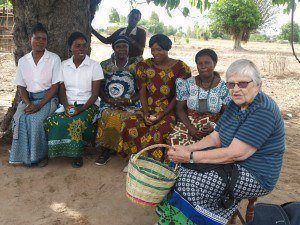Learning from the experiences of others: An interview with Dr. Marja-Liisa Swantz
What is and what is not PAR? How can emerging scholars effectively use PAR methods to bring about community change and social justice? What is the future of PAR? These are the questions we had in mind when we decided to obtain answers by interviewing Dr. Marja-Liisa Swantz, a distinguished participatory action research expert whose work has contributed immensely in the fields of development studies, women’s studies, health and technology internationally. Our aim was to learn more about PAR from the individual that has been involved directly with the methodology for generations.
By tracing her involvement with PAR projects from early beginnings to the present, readers are introduced to the fundamental principles of participatory research such as; theory and practice, ethical issues and above all, the question of power and collaboration in the research process pertaining to; who participates, who controls the project and who benefits from it. The ethical challenges and successes Dr. Marja-Liisa Swantz encountered along the way are also key points to consider. We strongly believe that this article will provide guidance to emerging scholars in the preparation, implementation and dissemination of participatory action research projects.
We invite you to learn more about this experience by reading our article HERE.
After you’ve had a chance to read this piece, please share your thoughts, ideas, or experiences with our community in the comments below so we can continue this discussion!
Blog post by Florence Nyemba
- Making Public Deliberations Inclusive with Mixed Methods AR - October 26, 2020
- Participatory action research with Aboriginal Elders: Ngulluk Koolunga Ngulluk Koort project - October 12, 2020
- Bringing the relational self to ART: Interview with Dr. Yvonne Skipper - October 1, 2020

